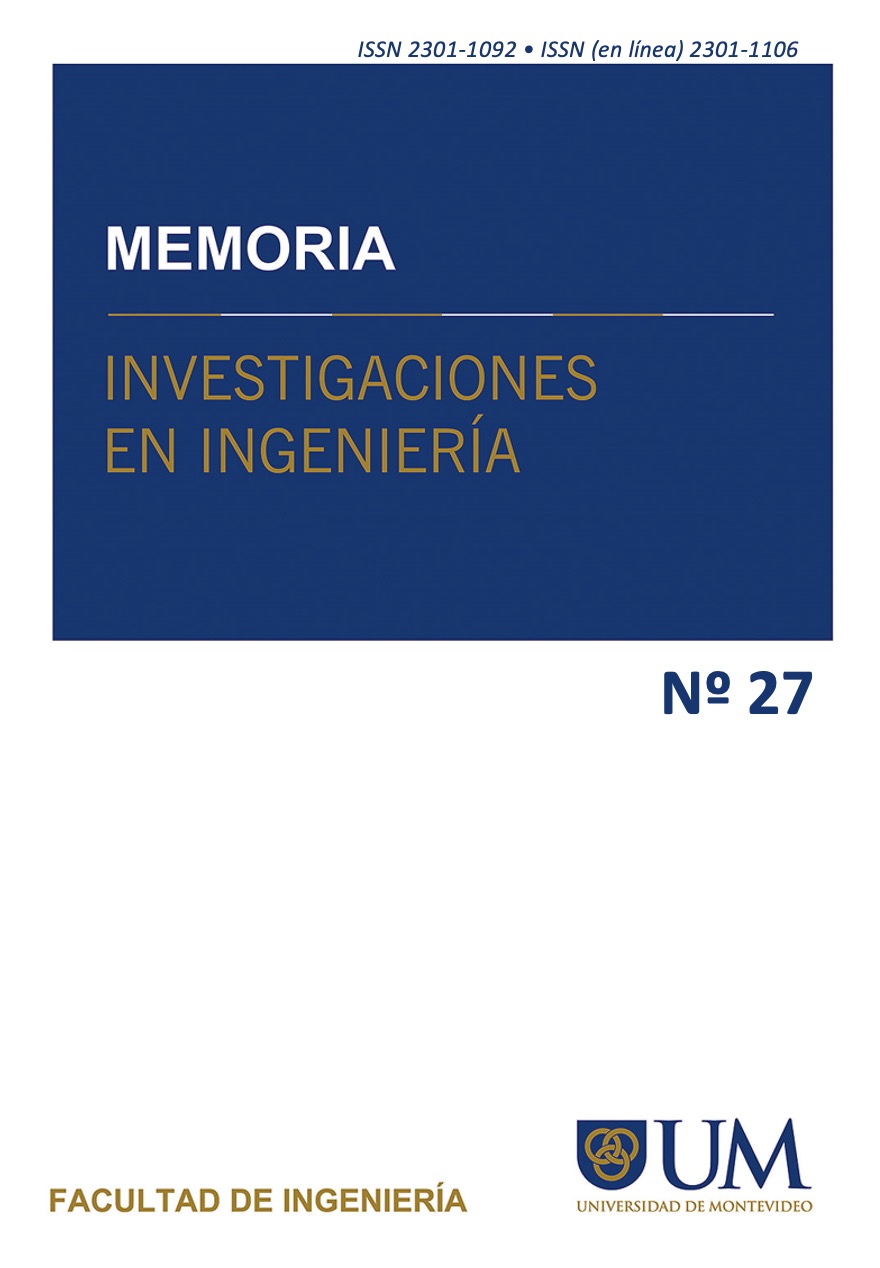¿Qué tiene de especial la ingeniería de requisitos para los sistemas cuántico-clásicos?
Palabras clave:
Obtención de requisitos, Sistemas híbridos cuántico-clásicos, Ingeniería de requisitos cuánticosResumen
La computación cuántica afectará en mayor o menor medida a todas las fases del ciclo de vida del desarrollo de software. Con el apoyo de la literatura actual, analizamos su posible impacto en la ingeniería de requisitos. Identificamos cuatro tendencias principales. Se requiere un estudio de viabilidad centrado en los aspectos cuánticos antes o después del análisis de requisitos. El análisis temprano de la disponibilidad y la elección del hardware desempeña un papel más importante que en el desarrollo de software clásico. Los requisitos se dividen en dimensiones funcionales, no funcionales, clásicas y cuánticas. La aceleración potencial de una solución cuántica debe estimarse y considerarse de antemano.
Descargas
Citas
I. Sommerville, Software Engineering, 10th ed. Pearson Education Limited, 2016.
M. Piattini, M. Serrano, R. Perez-Castillo, G. Petersen, and J. L. Hevia, “Toward a quantum software engineering,” IT Professional, vol. 23, no. 1, pp. 62–66, 2021.
M. A. Serrano, J. A. Cruz-Lemus, R. Perez-Castillo, and M. Piattini, “Quantum software components and platforms: Overview and quality assessment,” ACM Comput. Surv., vol. 55, no. 8, dec 2022. [Online]. Available: https://doi.org/10.1145/3548679
R. Pérez-Castillo, M. A. Serrano, and M. Piattini, “Software modernization to embrace quantum technology,” Advances in Engineering Software, vol. 151, p. 102933, 2021. [Online]. Available: https://www.sciencedirect.com/science/article/pii/S0965997820309790
M. Piattini, G. Peterssen, R. Pérez-Castillo, J. L. Hevia, M. A. Serrano, G. Hernández, I. G. R. de Guzmán, C. A. Paradela, M. Polo, E. Murina, and others, “The talavera manifesto for quantum software engineering and programming,” in QANSWER, 2020, pp. 1–5. [Online]. Available: https://www.aquantum.es/wp-content/uploads/2020/03/Talavera_Manifesto.pdf
M. Piattini and J. M. Murillo, “Quantum software engineering landscape and challenges,” in Quantum Software Engineering. Springer, 2022, pp. 25–38.
F. Regazzoni, A. Fowler, and I. Polian, “Quantum era challenges for classical computers,” in Proceedings of the 18th International Conference on Embedded Computer Systems: Architectures, Modeling, and Simulation, ser. SAMOS ’18. New York, NY, USA: Association for Computing Machinery, 2018, p. 173–178. [Online]. Available: https://doi.org/10.1145/3229631.3264737
A. D. Carleton, E. Harper, J. E. Robert, M. H. Klein, D. De Niz, E. Desautels, J. B. Goodenough, C. Holland, I. Ozkaya, and D. Schmidt, “Architecting the future of software engineering: A national agenda for software engineering research and development,” Software Engineering Institute, Carnegie Mellon University, Report, November 2021 2021. [Online]. Available: https://resources.sei.cmu.edu/library/asset-view.cfm?assetid=741193
B. Weder, J. Barzen, F. Leymann, and D. Vietz, Quantum Software Development Lifecycle. Cham: Springer International Publishing, 2022, pp. 61–83.
M. A. Akbar, A. A. Khan, and S. Rafi, “A systematic decision-making framework for tackling quantum software engineering challenges,” Automated Software Engineering, vol. 30, no. 2, pp. 1–44, nov 2023.
R. Pérez-Castillo, M. A. Serrano, J. A. Cruz-Lemus, and M. Piattini, “Guidelines to use the incremental commitment spiral model for developing quantum-classical systems,” Quantum Information and Computation, vol. 24, no. 1&2, pp. 71–88, 2024. [Online]. Available: https://www.rintonpress.com/xxqic24/qic-24-12/0071-0088.pdf
L. Pareto, “Extended abstract: requirements modeling within iterative, incremental processes,” in Proceedings. Second ACM and IEEE International Conference on Formal Methods and Models for Co-Design, 2005. MEMOCODE ’05., 2005, pp. 249–250.
U. S. Shah, D. C. Jinwala, and S. J. Patel, “An excursion to software development life cycle models: An old to ever-growing models,” SIGSOFT Softw. Eng. Notes, vol. 41, no. 1, p. 1–6, feb 2016. [Online]. Available: https://doi.org/10.1145/2853073.2853080
J. Marin, J. Hurtado, M. Bastarrica, and L. Silvestre, “Tailoring hybrid software processes in a medium-size software company,” in Proceedings of the 38th ACM/SIGAPP Symposium on Applied Computing, ser. SAC ’23. New York, NY, USA: Association for Computing Machinery, 2023, p. 1042–1050. [Online]. Available: https://doi.org/10.1145/3555776.3577709
N. Dey, M. Ghosh, S. S. Kundu, and A. Chakrabarti, “Qdlc – the quantum development life cycle,” ArXiv e-prints, oct 2020.
G. J. Hernández González and C. A. Paradela, “Quantum Agile Development Framework,” in Quality of Information and Communications Technology, M. Shepperd, F. Brito e Abreu, A. Rodrigues da Silva, and R. Pérez-Castillo, Eds. Cham: Springer International Publishing, 2020, pp. 284–291.
P. Spoletini, “Towards quantum requirements engineering,” in 2023 IEEE 31st International Requirements Engineering Conference Workshops (REW). IEEE, 2023, pp. 04–05.
M. R. El aoun, H. Li, F. Khomh, and M. Openja, “Understanding quantum software engineering challenges an empirical study on stack exchange forums and github issues,” in 2021 IEEE International Conference on Software Maintenance and Evolution (ICSME), 2021, pp. 343– 354.
J. Zhao, “Quantum software engineering: Landscapes and horizons,” arXiv, 2020, ISBN: 2007.07047v2.
T. Yue, S. Ali, and P. Arcaini, “Towards quantum software requirements engineering,” in 2023 IEEE International Conference on Quantum Computing and Engineering (QCE), vol. 02, 2023, pp. 161–164. [Online]. Available: https://ieeexplore.ieee.org/abstract/document/10313750
L. Saraiva, E. H. Haeusler, V. Costa, and M. Kalinowski, “Non-functional requirements for quantum programs,” in 2nd Quantum Software Engineering and Technology Workshop (QSET), colocated with IEEE International Conference on Quantum Computing and Engineering (QCE21), Virtual Conference, Oct 19, 2021.
M. Salm, J. Barzen, U. Breitenbücher, F. Leymann, B. Weder, and K. Wild, “The nisq analyzer: Automating the selection of quantum computers for quantum algorithms,” in Service-Oriented Computing, S. Dustdar, Ed. Cham: Springer International Publishing, 2020, pp. 66–85.
N. Chancellor, R. Cumming, and T. Thomas, “Toward a standardized methodology for constructing quantum computing use cases,” 2020. [Online]. Available: https://doi.org/10.48550/arXiv.2006.05846
A. W. Cross, L. S. Bishop, S. Sheldon, P. D. Nation, and J. M. Gambetta, “Validating quantum computers using randomized model circuits,” Phys. Rev. A, vol. 100, p. 032328, Sep 2019. [Online]. Available: https://link.aps.org/doi/10.1103/PhysRevA.100.032328
M. Suchara, J. Kubiatowicz, A. Faruque, F. T. Chong, C.-Y. Lai, and G. Paz, “Qure: The quantum resource estimator toolbox,” in 2013 IEEE 31st International Conference on Computer Design (ICCD), 2013, pp. 419–426.
R. Pérez-Castillo and M. Piattini, “Design of classical-quantum systems with uml,” Computing, vol. 104, no. 11, pp. 2375–2403, 2022.
J. W. Z. Lau, K. H. Lim, H. Shrotriya, and L. C. Kwek, “Nisq computing: where are we and where do we go?” AAPPS bulletin, vol. 32, no. 1, p. 27, 2022.



















